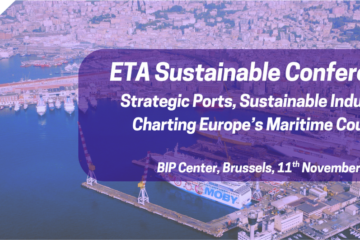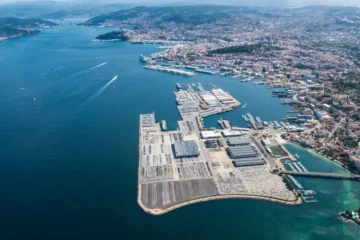The EU advances with the preparation work for a new Directive on the development and adoption of alternative and green fuels for shipping, Fuel EU Maritime. The EC has recently closed a targeted consultation focused on the type of fuels that will most likely be suitable for the maritime sector by 2030 and by 2050. Furthermore, the EC met with its stakeholders in the shipping industry to discuss (virtually) this legislative initiative.
ETA formulated its response to the consultation asserting that any legislative procedure should be technology neutral since it is still not clear which type of green fuel shall be more suitable for the sector. Furthermore ETA concluded its response by emphasizing that there is no one size fits all solution for the industry, and therefore, whatever legislative initiatives are taken the diversity of the maritime community needs to be kept in mind. Moreover, ETA submitted its reactions to the roadmap on Sustainable and Smart Mobility Strategy in July expressing the same concerns and advocating for technology neutrality and further support and legal certainty to early adaptors.
The EU has committed to become carbon neutral by 2050 and in her last State of the Union speech, EC Commission President Ursula von der Leyen proposed a more ambitious decarbonization goal for 2030 with a 55% cut in greenhouse gases. To meet these objectives shipping has to undergo a transition to alternative fuels and energy sources. The decarbonisation of the sector will require major efforts, investments and time.
Some of these emissions reductions, around 20%-30%, can be achieved by improving the operational efficiency of ships or reducing their speed, but the choice of fuels shall be the key element to reach the goals. Thus, this initiative aims at supporting the development and uptake of greener fuels, addressing the many bottlenecks impeding the availability and use of these solutions.
For example, alternative fuels such as biomethane or synthetic hydrocarbons are already available but supply is limited. Moreover, other fuels require technical modifications to ships (ammonia, hydrogen) and are still some years away from large scale production. And if so, ports would need to construct new infrastructure to storage and bunker these fuels, while new safety measures will have to be developed and adopted. Taking into account the ship’s lifetime, around 20 – 40 years, the next generation of boats will have to be much greener and adapted to use these cleaner fuels.
Therefore, the Directive proposal will try to help member states to remove these barriers, complementing the EU funding in infrastructure and R+D and giving the sector the necessary legal certainty to boost the private investment in cleaner shipping technologies and green ships. This Directive proposal is going to be presented during this trimester.
“Fuel EU Maritime should play an essential role in the decarbonization of our sector. This legislation has to be the cornerstone of a series of European initiatives that revolutionise shipping. It should also give our whole industry the certainty and confidence that it needs to invest in greener technologies and the renovation of fleets”, says Anna Maria Darmanin ETA Secretary General.



0 Comments